World Vets seeks an enthusiastic and hardworking intern who is ready for an adventure! We have an exciting summer internship opportunity as part of our International Veterinary Medicine (IVM) Program. The IVM Program is World Vets student program that provides English speaking international students with an opportunity to gain practical veterinary experience as well as hands on instruction in relation to performing clinical tasks.
As part of this opportunity, the intern will work alongside World Vets staff, local partners and volunteers in Ecuador to aid and assist with the execution of the Summer 2019 IVM Program. More details are provided below.
Tasks & Responsibilities:
– Assist with local logistics and coordination as it pertains to the IVM Program, in addition to providing general animal care. Activities and tasks may consist of the following:
- Tending to surgical patients post op in recovery; monitoring, grooming, and administration of post op medicines
- Taking part in community outreach activities, which provide free veterinary services for dogs, cats and livestock in outlying rural communities
- When appropriate, helping to prep animal patients for surgery
- Miscellaneous administrative/data collection duties
– Act as social coordinator for IVM Program participants while the program is underway. This will consist of the following
- Welcoming students/instructors to program housing upon arrival and showing them around the villa and to their rooms
- Being the “go to” person should anyone have any “tourist related” questions in relation to where they can go to do this, where they can go buy that, best places to eat etc.
- Getting everyone signed up for an activity prior to the designated free day and getting these activities* lined up (and collecting money for this, if needed)
- Take part in the weekly group activity that is scheduled the day after arrivals
- When there is free time or during evenings, organize activities or social get-togethers where people can get to know each other, have fun, and experience more of Otavalo. I.e. rally up people to go out to dinner, to go shopping etc.
*World Vets will have 3 set activities that we offer to coordinate for IVM Program participants
There are also opportunities to participate in ongoing studies and/or conduct research as part of this internship opportunity
Who can Apply?
- This internship opportunity is open to veterinary technicians, pre-veterinary students, veterinary technician students, as well as those who are pre-med and/or studying nursing. Students with an interest and/or focus in One Health will also be considered.
- Preference will be given to those who have participated on a past IVM Program session
- We seek candidates who are able to commit for a minimum of 4 weeks, if not 8 consecutive weeks from May 15 – July 10, 2019
- Spanish fluency or conversational Spanish is desired, though not a requirement.
Conditions:
- This is a non paid internship, but an excellent opportunity to gain experience working in an international setting with a veterinary non-profit, meanwhile helping animals in need.
- There is a fee associated with this internship opportunity. In exchange for this fee, the following will be provided for the intern; housing for the duration of the internship, airport transfers (on assigned days), ground transportation related to clinic work and veterinary activities, breakfast, lunches on clinic work days, program supplies and full participation in program activities, in addition to a World Vets scrub top and/or gear.
- What is not provided (and what the intern will need to cover): International airfare, optional excursions/activities, dinner, travel and/or health insurance, personal equipment necessary for the opportunity (i.e watch, stethoscope, water bottle), incidentals and anything not specifically outlined as included.
If interested, please send a cover letter and copy of your current resume/CV to drsteve@worldvets.org BEFORE MARCH 15th, 2019. In the cover letter, please list your full name and any previous World Vets project(s) and/or past IVM Program session(s) you may have participated on and whether you are able to commit for the dates listed.




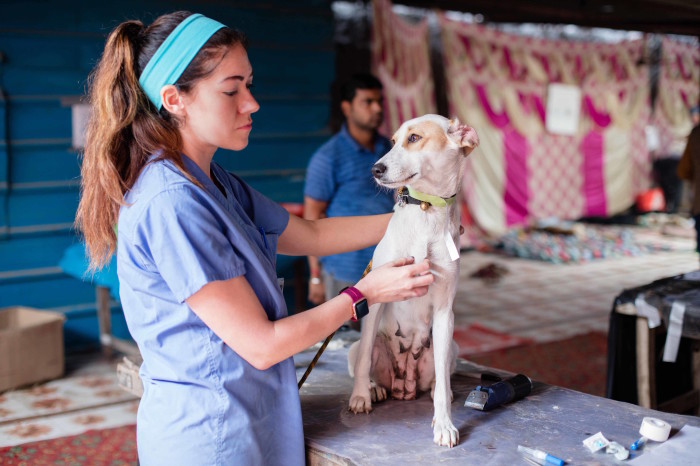
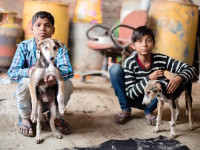
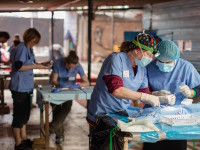

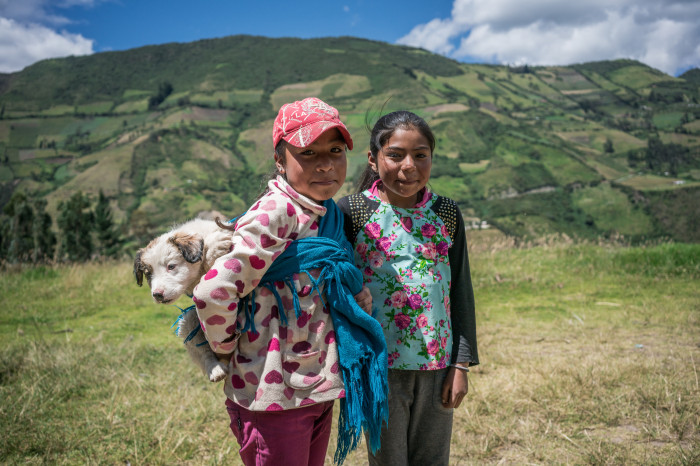
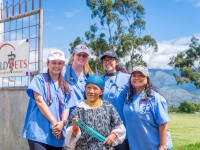
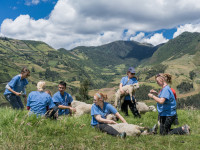
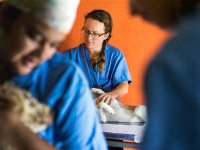
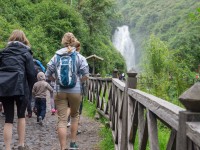
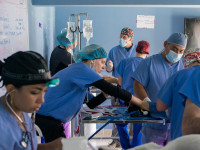
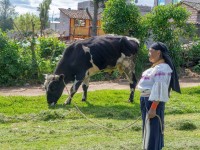
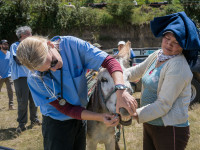
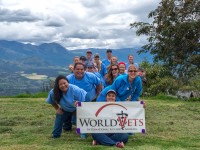
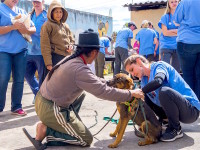
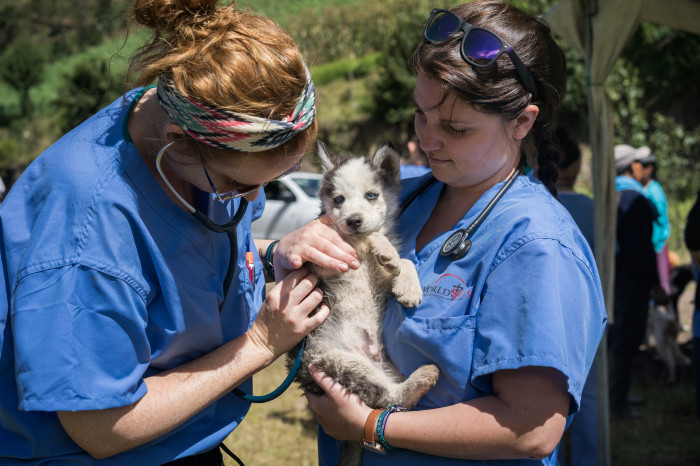

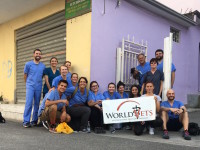

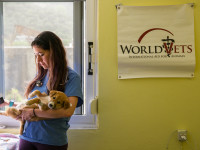

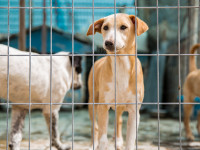
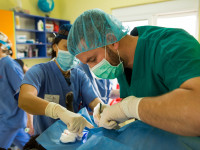

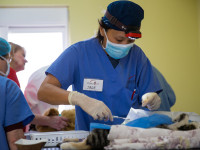

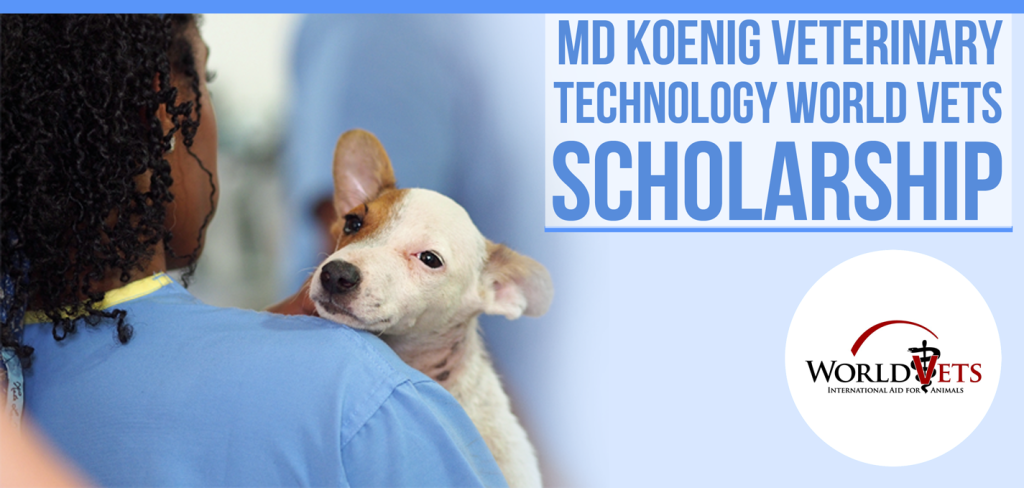 World Vets is excited to announce the 2019 MD Koenig Veterinary Technology World Vets Scholarship! Veterinary technicians are essential team members in all aspects of veterinary medicine. This scholarship will recognize one outstanding individual by honoring them with a 1 week paid project fee for the World Vets International Veterinary Medicine Training Program (IVM) located in Otavalo, Ecuador.
World Vets is excited to announce the 2019 MD Koenig Veterinary Technology World Vets Scholarship! Veterinary technicians are essential team members in all aspects of veterinary medicine. This scholarship will recognize one outstanding individual by honoring them with a 1 week paid project fee for the World Vets International Veterinary Medicine Training Program (IVM) located in Otavalo, Ecuador.